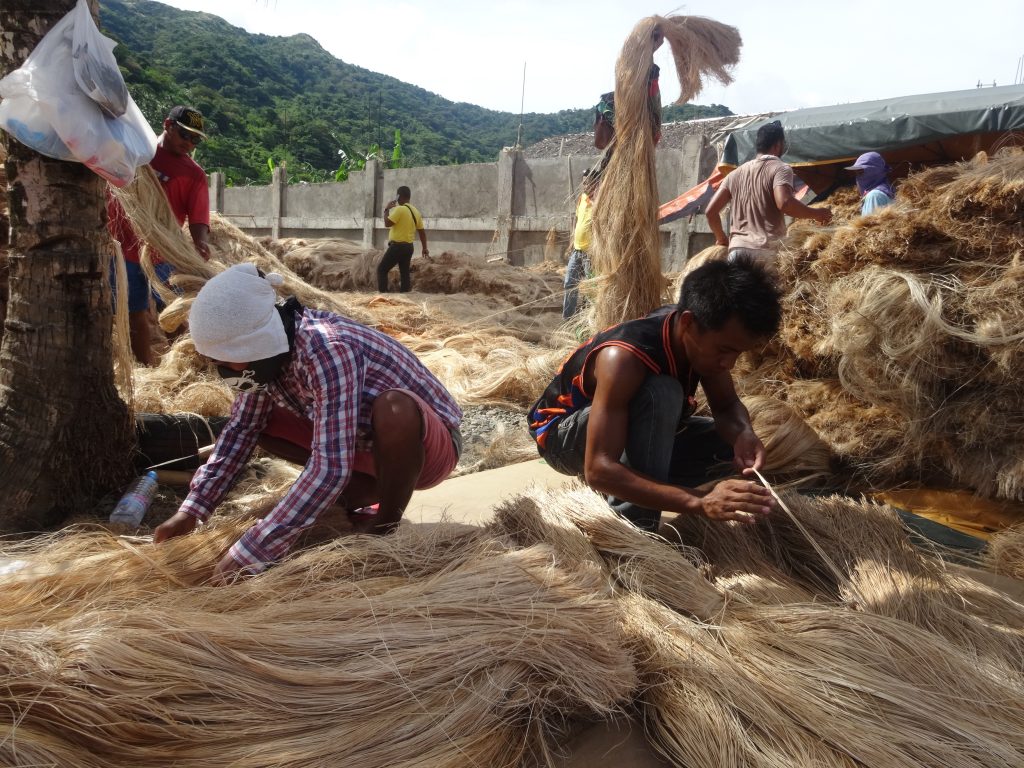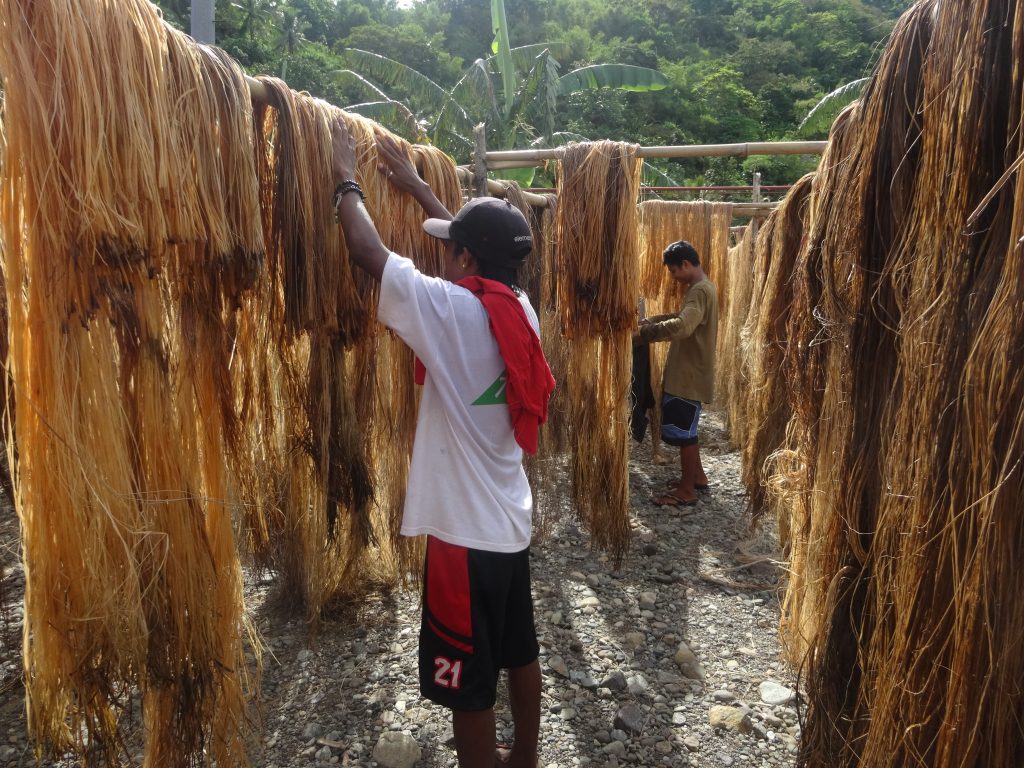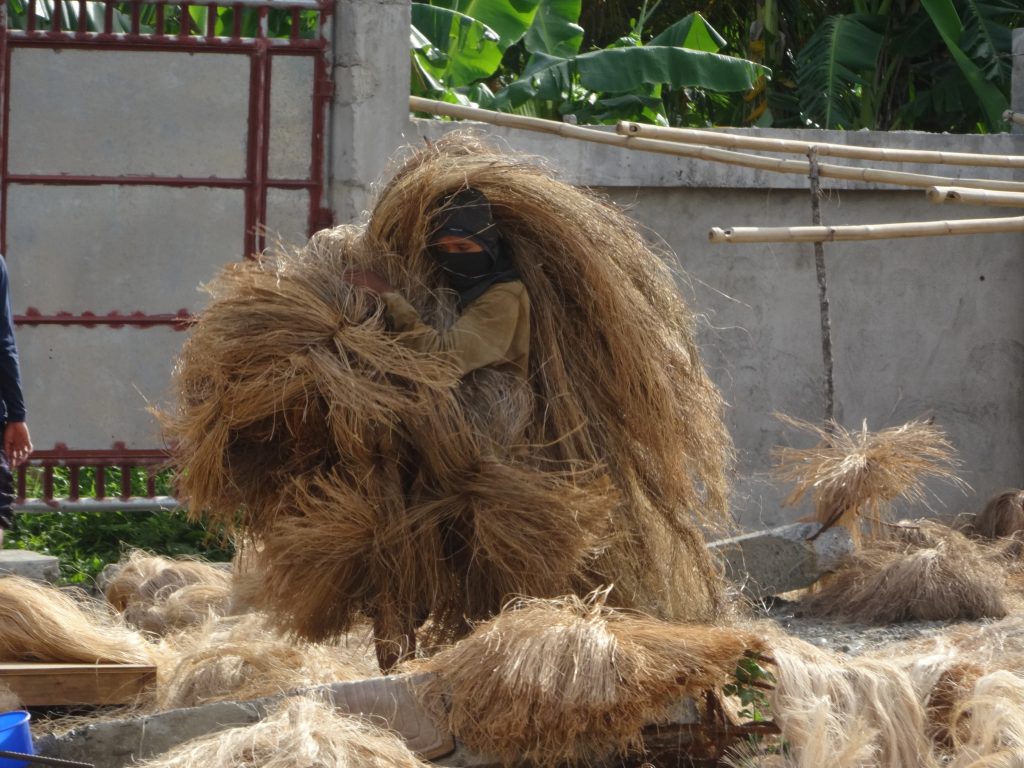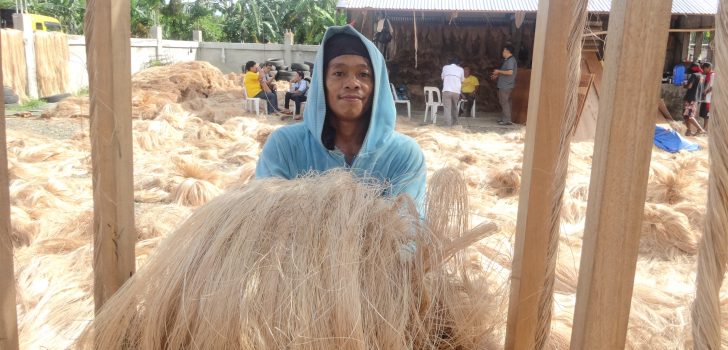 Pinoy Lingap-Damayan Multi-Purpose Cooperative (PLDC) member Joseph Orcillada gathers a bale of dried abaca fiber at the PLDC warehouse in Brgy. Sipi, Bato, Catanduanes. (Photo by Annielyn L. Baleza, DA-PRDP RPCO V InfoACE Unit)
Pinoy Lingap-Damayan Multi-Purpose Cooperative (PLDC) member Joseph Orcillada gathers a bale of dried abaca fiber at the PLDC warehouse in Brgy. Sipi, Bato, Catanduanes. (Photo by Annielyn L. Baleza, DA-PRDP RPCO V InfoACE Unit) DA-PRDP changes plight of abaca farmers in Catanduanes
Mindless of the heat of the afternoon sun, 34 year-old Joseph Orcillada of Viga, Catanduanes carries one bale of abaca with a smile on his face. For someone who loves his newfound job, he just cannot contain the joy of having a better source of income.
“Dati bago maghagot, mangungutang muna ako sa tindahan ng 10 kilong bigas at sari-sari (Before, I used to borrow 10 kilograms of rice and other commodities from the store before I can proceed with abaca stripping),” he shared. A father of three, he then divides the 10 kilos of rice between him and his family; five kilos of which would be reserved for his one-week consumption in the mountains of Viga to strip abaca fiber.
It takes one and a half hours of hiking to reach the mountain where abaca plants thrive. According to Orcillada, going there during rainy days is very risky. But failure to gather abaca for one week means losing 40 kilos of abaca fiber which he could sell at P41 per kilogram–enough to pay his debts and provide for his family’s needs for the coming week.
Now a member of the Pinoy Lingap-Damayan Multi-Purpose Cooperative (PLDC), Orcillada is in charge of baling abaca fiber from 8 a.m. to 5 p.m. for P300 per day.
“Mas maganda ngayon ang trabaho ko. Mas magaan at malaki ang kita (I have a better job now. It’s easier and I earn more),” he said.
Orcillada is one of the abaca farmers who benefits from the dry run operation of the PLDC’s Abaca Fiber Processing and Trading Enterprise, the proposed enterprise of the Provincial Government of Catanduanes to be funded and technically assisted by the Department of Agriculture’s Philippine Rural Development Project (PRDP).
With an investment capital requirement worth P25.45 million, the enterprise will be implemented by the PLDC as the proponent group. It will engage in abaca fiber processing and trading including the bacbac or abaca plant’s dried leafsheaths. PLDC became a game changer in abaca fiber’s farmgate price trends in Catanduanes since it started its dry run operation in October 2015.
According to PLDC General Manager Antonio A. Jimenez Jr., before the PLDC’s dry run operation, traders control the pricing of abaca fiber at the barangay level by buying them at P5-P7 lower than the price in Virac, the province’s capital town. Now that the cooperative buys abaca fiber at P76 per kilo, which is P1 on top of the prevailing Virac price, barangay traders also follow the price trends, which works to the abaca farmers’ advantage.
With the approval of the business plan on Catanduanes’ Abaca Fiber Processing and Trading Enterprises on August 12, 2016, PRDP will invest on vehicles, warehouse, tools and equipment to boost PLDC’s abaca fiber production as well as enhance its product quality. This is projected to raise abaca farmers’ quality of lives through incentive pricing, freight savings, productivity bonus, patronage refund and jobs generation.
Internationally known as Manila hemp, abaca is considered as the most important cultivated plant fiber in the Philippines in terms of hectarage, production and contribution to the country’s economy. The abaca fiber extracted from the plant’s stalk is three times stronger than cotton and twice stronger than sisal fibers. Hence, it is known as the sturdiest among plant fibers. Abaca fiber has higher tensile strength and reduced elongation than synthetic fiber in both wet and dry states. Among the major abaca products are cordage, ropes, fibercrafts and fiberboards.
According to the Philippine Fiber Industry Development Authority (PhilFIDA), the Philippines is the top abaca producer worldwide, with about 172,934 hectares of abaca being managed by 113,648 abaca farmers. The country supplies 87 percent of global abaca fiber requirements. Catanduanes, being the country’s biggest abaca-producing province, is known as the “Abaca County.” ### (Annielyn L. Baleza, DA-PRDP RPCO V InfoACE Unit)
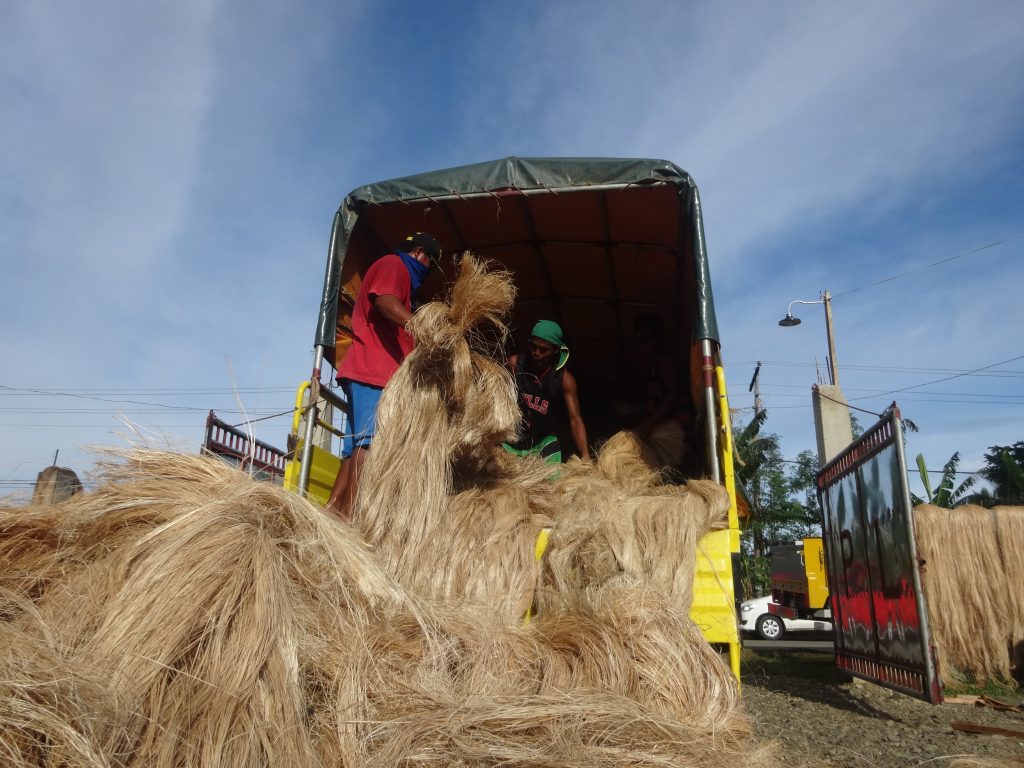
The Pinoy Lingap-Damayan Multi-Purpose Cooperative’s (PLDC) dry run operation of the Abaca Fiber Processing and Trading Enterprise in Brgy. Sipi, Bato, Catanduanes provides employment to 27 laborers at P300 per day. With the approval of the enterprise development (I-REAP) sub-project, PLDC aims to raise the income of its 3,483 abaca-farmer members. (Photo by Annielyn L. Baleza, DA-PRDP RPCO V InfoACE Unit)

